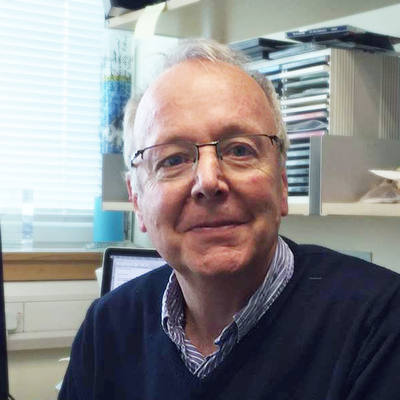
Alumni
This person is a member of Sanger Institute Alumni.
This page is no longer being updated and is a historical record of Adrian Bird’s work at the Sanger Institute.
Adrian is based in the Wellcome Trust Centre for Cell Biology, Edinburgh University, where he holds the Buchanan Chair of Genetics. He graduated in Biochemistry from the University of Sussex UK and obtained his PhD at Edinburgh University.
Following postdoctoral experience at the Universities of Yale and Zurich, he joined the Medical Research Council’s Mammalian Genome Unit in Edinburgh. In 1987 he moved to Vienna to become a Senior Scientist at the newly-founded Institute for Molecular Pathology.
Adrian’s research focuses on the basic biology and biomedical significance of DNA methylation. His research team identified CpG islands as gene markers in the vertebrate genome and discovered proteins that read the DNA methylation signal to influence chromatin structure. Mutations in one of these proteins, MeCP2, cause the autism spectrum disorder Rett Syndrome. His team also established a mouse model of Rett Syndrome and showed that the resulting severe neurological phenotype can be cured. Awards include the Louis-Jeantet Prize for Medicine (1999) and the Gairdner International Award (2011).
My timeline
Awarded the Shaw Prize in Life Science and Medicine
Elected as Foreign Associate of the National Academy of Sciences
Became a Knight of the British Empire (KBE)
Awarded the BBVA Frontiers of Knowledge Award
Awarded the Royal Society GlaxoSmithKline Prize
Awarded the Gairdner International Award
Became a Wellcome Trust Governor (stepping down in 2010)
Awarded the Gabor Medal
Helped to create the Wellcome Trust Centre for Cell Biology, Edinburgh and served as director until 2011
Became a Commander of the British Empire (CBE)
Awarded the Louis-Jeantet Prize for Medicine
Became Buchanan Professor of Genetics at the University of Edinburgh
Elected as a Fellow of the Royal Society
Senior Scientist at the newly-founded Institute for Molecular Pathology, Vienna
Joined MRC Mammalian Genome Unit, Edinburgh